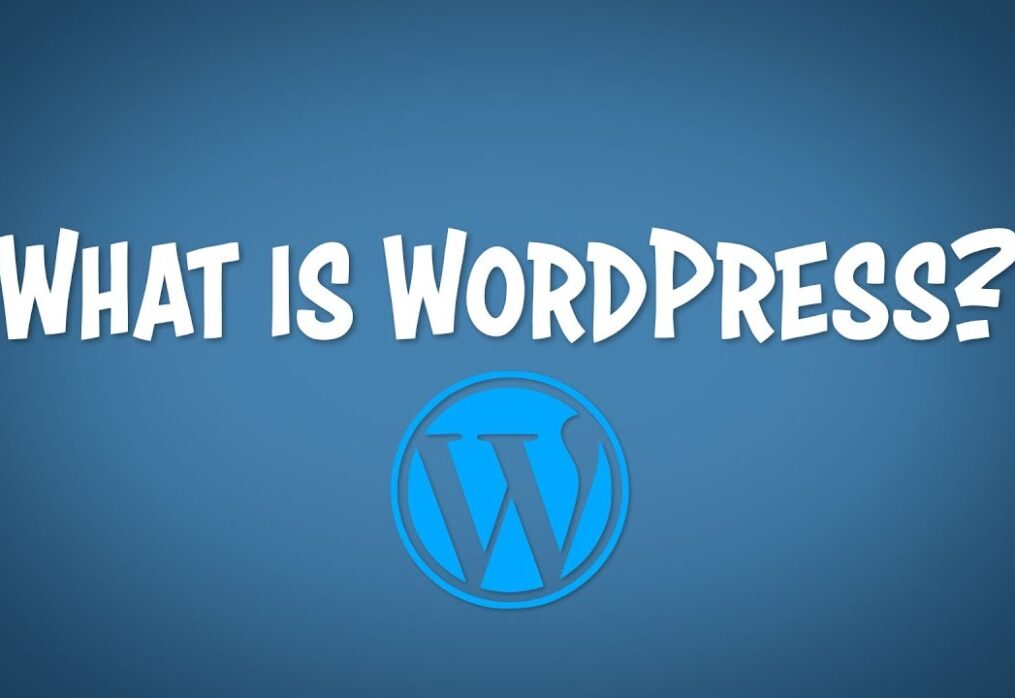January 13, 2022
What is WordPress, and how is it different from other CMS platforms?
WordPress is an open-source Content Management System (CMS) that allows users to build and manage websites easily without extensive coding knowledge. It is one of the most popular CMS platforms in the world, powering millions of websites, from simple blogs to complex business and e-commerce sites.

Key Features of WordPress:
- User-Friendly Interface: WordPress provides an intuitive admin panel that makes creating and managing content simple.
- Customizability: It offers thousands of themes and plugins, enabling users to customize the look, feel, and functionality of their site without programming.
- SEO-Friendly: Built with search engine optimization (SEO) in mind, WordPress provides tools and plugins that help optimize site content for better search engine ranking.
- Community Support: With a massive community of developers and users, there are extensive resources, documentation, and forums available for support.
- Scalability: Suitable for sites of all sizes, from small blogs to large e-commerce sites.
- Open Source: WordPress is free to download, install, and use, with a large repository of open-source plugins and themes.
Differences Between WordPress and Other CMS:
- Ease of Use:
- WordPress: Known for its beginner-friendly interface, making it an excellent choice for users with minimal technical skills.
- Other CMS (e.g., Drupal, Joomla): Often have steeper learning curves with more technical configurations needed, making them more suitable for experienced developers.
- Customization and Flexibility:
- WordPress: Offers a vast library of plugins (over 50,000) and themes that enable quick feature integration and design changes.
- Other CMS: While platforms like Drupal and Joomla are also customizable, they may require more technical expertise for similar functionality or design changes.
- Community and Support:
- WordPress: Has one of the largest global communities, meaning more tutorials, plugins, themes, and third-party support.
- Other CMS: Platforms like Drupal also have strong communities, but they are smaller, and support resources may not be as extensive as WordPress.
- Cost:
- WordPress: While the software itself is free, costs can come from premium plugins, themes, and hosting. However, its large number of free resources helps keep costs low.
- Other CMS: Depending on the CMS, there may be fewer free themes and plugins, leading to higher development costs if custom work is required.
- Security:
- WordPress: Security depends on the plugins used and maintenance practices. It’s widely used, which makes it a target for vulnerabilities; however, there are many plugins and best practices for enhancing security.
- Other CMS: Platforms like Drupal are known for their robust security architecture and are often preferred for enterprise-level sites with higher security needs.
- Performance:
- WordPress: Performance can be highly optimized with the right combination of plugins and hosting. It can, however, slow down with excessive use of plugins or poor-quality themes.
- Other CMS: Some CMS platforms like Drupal may offer more built-in performance optimization options but require more technical expertise.
Summary:
WordPress is favored for its simplicity, extensive customization options, and large community. It’s an excellent choice for individuals, small businesses, and even larger projects looking for a cost-effective and flexible solution. Other CMS platforms like Drupal and Joomla may offer more advanced features and better security but typically require more technical skills to set up and manage.

